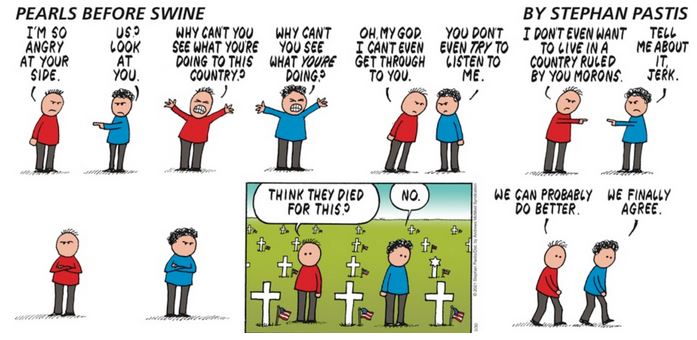Jesus said to his disciples: “You have heard that it was said. You shall love your neighbor and hate your enemy. But I say to you, love your enemies and pray for those who persecute you, that you may be children of your heavenly Father, for he makes his sun rise on the bad and the good, and causes rain to fall on the just and the unjust. For if you love those who love you, what recompense will you have?
I just finished reading Ian Toll’s trilogy on the War in the Pacific 1941-1945. I started around Memorial Day – which seemed quite appropriate and finished last week. I thought I knew a lot about the War. Being one of the children of the Greatest Generation – and the most silent, too, the absence of stories from my father and my uncles left me with a curiosity to know more about what they were ready to forget.
What lets Toll’s trilogy stand apart from those historians who wrote before him was his access to the personal war diaries of women and men on both sides of the conflict in the Pacific. One of the journals cited at various points along the timeline was from a young Japanese woman. She journaled during the 1930s when tales of victory in China filled the official news channels. She recorded the exhilaration of news of December 1941 sweeping victories at Pearl Harbor, Singapore, the Philippines, New Guinea, and a host of island chains. She recorded that the war was over as the Americans were not spiritual people, nor honorable people, and too accustomed to the soft life of decadence. In later passages, as the tide of fortune changed, and slowly the forces of the Emperor were pushed back, she recorded the stories of the glorious samurai martyrs who died for their man-god Emperor. After the surrender she actually met Americans and was shocked by their compassion, kindness and generosity.
The diaries of the US Marines from Guadalcanal record the savagery, almost beast like demeanor, of the Japanese troops who desecrated the bodies of their fallen comrades, who foolishly charged well defended positions, throwing away their lives. What kind of people were these? When stories of Bataan, Manila, and cruelty to the prisoners of war began to circulate, it only confirmed what they thought. But the experience of Tarawa, Peleliu, Iwo Jima, and Okinawa showed the enemy to be warriors committed to their cause. After the surrender these marines met the Japanese people and saw the degree of suffering the civilians had experienced and the lies that had been told to them – and yet the Marines were welcomed into homes.
There are a million stories between the grand strategy and tactics that unfolded in those years.
In the years 1941-1945 the sun rose on them all – the good and the bad. The rain fell on the just and the unjust. When the survivors of war finally met the enemy, change was possible. Not all were able to forget the years.
Louie Zamperini was shot down in WWII. 47 days on a life raft. Two brutal years in a prisoner of war camp. Brutal years where he survived beatings, starvation, debilitating illnesses and psychological torture designed to break him down and make an example of the famous Olympian-turned-war hero. His story is recounted in Unbroken. The author wrote of Zamperini: “His story is a lesson in the potential that lies within all of us to summon strength amid suffering, love in the face of cruelty, joy from sorrow.” He forgave those who imprisoned and tortured him. Years later, Zamperini wrote a letter of forgiveness to one of his most horrific tormentors. In 1998, he was invited back to Japan to run a leg of the torch relay at the Nagano Olympics and ran past the former camps where he had been imprisoned.
If all these people can learn to accept others as neighbors and learn to act in love, perhaps we too can do better in our age of factious divide between neighbors.
